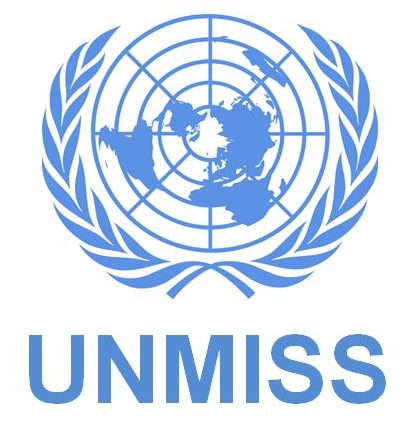Government peacebuilders, youth and United Nations Mission in South Sudan (UNMISS) sow seeds of peace amidst guns
As morning breaks, the vast and open plains of South Sudan’s Lakes state are filled with sounds of cattle and the overwhelming smell of smoke.
It is at this relatively quiet time, that a team from the United Nations Mission in South Sudan (UNMISS) and state authorities from the Ministry of Peacebuilding set out on a drive.
They aim to meet herders, armed youth, and residents in cattle camps that dot the landscape. Why? To hear their concerns and discuss the possibility of a future without violence.
For generations, cattle have been a symbol of wealth and pride across Lakes. And, in recent years, they have also become a source of deadly conflict. Cattle theft, revenge raids, and competition over water have left a trail of grief in local communities with countless lives lost and properties destroyed.
At one such cattle camp called Buol, 24-year-old herder Makur Magor Bok stands firm at the centre of a gathering. A seasoned cattle keeper despite his age, Makur carries a weapon, not out of malice, he says, but out of necessity. “If I knew my cattle and my family were safe, I would give up my gun today,” he says, gesturing to the automatic rifle slung across his shoulder. “We are not criminals, we are just afraid.”
Makur told Civil Affairs officers from the UN Peacekeeping mission that thieves had stolen one of his rifles, along with phones and solar chargers. Though he knew who was responsible, he made a decision that surprised many in his community. “I could have tracked them and fought with them, retrieved my belongings and avenged myself, but I remembered the peace messages I heard from UNMISS before. You said revenge only brings more killing,” he explained. “So I reported them to the traditional authorities. I want to believe in the law, not in a gun and, hopefully, I won’t be disappointed”
His unprecedented choice—to trust the system instead of fuelling the cycle of violence—sparked a debate among his peers. Some responded with irony, while others said that they had seen enough of their people die over senseless quarrels.
In another nearby cattle camp, Abuok Deng, a 17-year-old girl, shared her fears. “We sleep in fear. On any given night, someone might raid us. I think to myself that maybe this is the night I lose my baby brother; maybe this is the night someone hurts me,” she exhales, with looking out into the distance. “We need safety.”
The team of government peacebuilders and UNMISS peacekeepers listened intently and responded with strong messages on conflict resolution, the power of dialogue, and the importance of community-led peace. “This visit is not about disarming people,” stated Ruby Awude, a Civil Affairs Officer. “It is about creating the kind of peace and safety in communities that makes carrying a gun unnecessary.”
As twilight fell, the team left behind more than just words: they left seeds for lasting peace. Whether these take root depends not only on institutional change but also on the courage of individuals like Makur and Abuok.
Their words reflect the hope that still flickers in Lakes state: that even in a place tormented by cycles of conflict, there are those who choose peace.
Distributed by APO Group on behalf of United Nations Mission in South Sudan (UNMISS).


